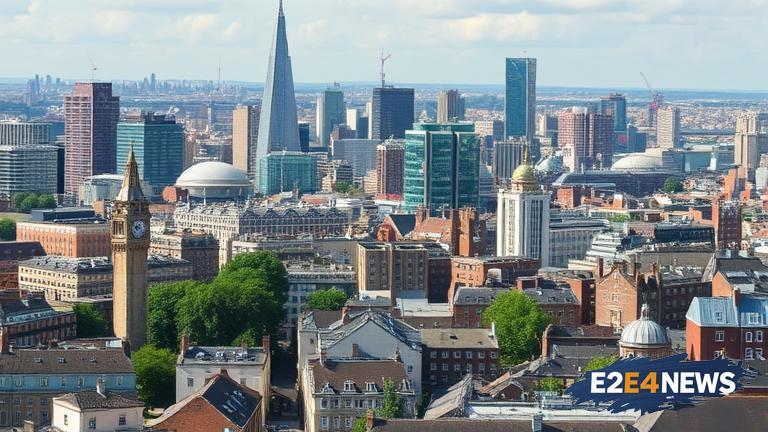London, a city in southwestern Ontario, Canada, is experiencing rapid growth, with new homes and developments sprouting up on its edges. This expansion has sparked concerns among residents, city officials, and environmentalists about the city’s ability to sustain its growth. One of the primary concerns is the strain on the city’s infrastructure, including roads, public transportation, and utilities. As the city grows, so does the demand for these services, which can lead to increased traffic congestion, longer commute times, and higher costs for taxpayers. Another concern is the impact on the environment, as the city’s green spaces and natural areas are being developed into residential and commercial areas. This can lead to the loss of biodiversity, increased air pollution, and decreased quality of life for residents. Furthermore, the rapid growth has also led to concerns about affordability, as the increased demand for housing has driven up prices, making it difficult for low- and moderate-income families to find affordable housing. The city’s planning department is working to address these concerns, by implementing policies and regulations to ensure that growth is managed sustainably. This includes measures such as increasing density, promoting mixed-use development, and investing in public transportation. However, some residents and developers are pushing back against these efforts, arguing that they will limit the city’s ability to grow and attract new businesses and residents. Despite these challenges, the city is committed to finding a balance between growth and sustainability, and is working to create a comprehensive plan that will guide development in the years to come. The plan will take into account the city’s environmental, social, and economic goals, and will aim to create a vibrant and livable community for all residents. In addition to the city’s efforts, there are also many community groups and organizations working to promote sustainable development and protect the city’s natural areas. These groups are advocating for policies and practices that prioritize the environment, social justice, and community engagement. Some of the key strategies being proposed include increasing the use of renewable energy, reducing waste and pollution, and promoting sustainable transportation options. The city is also exploring innovative approaches to housing, such as inclusionary zoning and community land trusts, to increase the availability of affordable housing. Moreover, the city is working to enhance its public spaces, including parks, trails, and community centers, to create vibrant and inclusive community hubs. The city’s growth and development are not only affecting the environment and residents but also the local economy. The influx of new residents and businesses is creating new opportunities for economic growth, but it also poses challenges, such as increased competition for local businesses and a potential shift in the city’s character. To address these concerns, the city is working to create a diverse and resilient economy, with a focus on supporting local businesses, promoting innovation, and fostering a strong sense of community. The city’s efforts to balance growth and sustainability are being watched closely by other municipalities, as they grapple with similar challenges. London’s approach to managing growth and development will serve as a model for other cities, and its successes and challenges will provide valuable lessons for urban planners and policymakers. Ultimately, the city’s ability to find a balance between growth and sustainability will depend on the ability of its residents, businesses, and government to work together to create a shared vision for the city’s future. By prioritizing sustainability, social justice, and community engagement, London can create a thriving and resilient community that benefits all residents, while also protecting the environment and promoting economic growth. The city’s journey towards sustainability will be ongoing, and it will require continued effort and commitment from all stakeholders. However, with its strong foundation and commitment to sustainability, London is well-positioned to become a model for sustainable urban development in the years to come.





